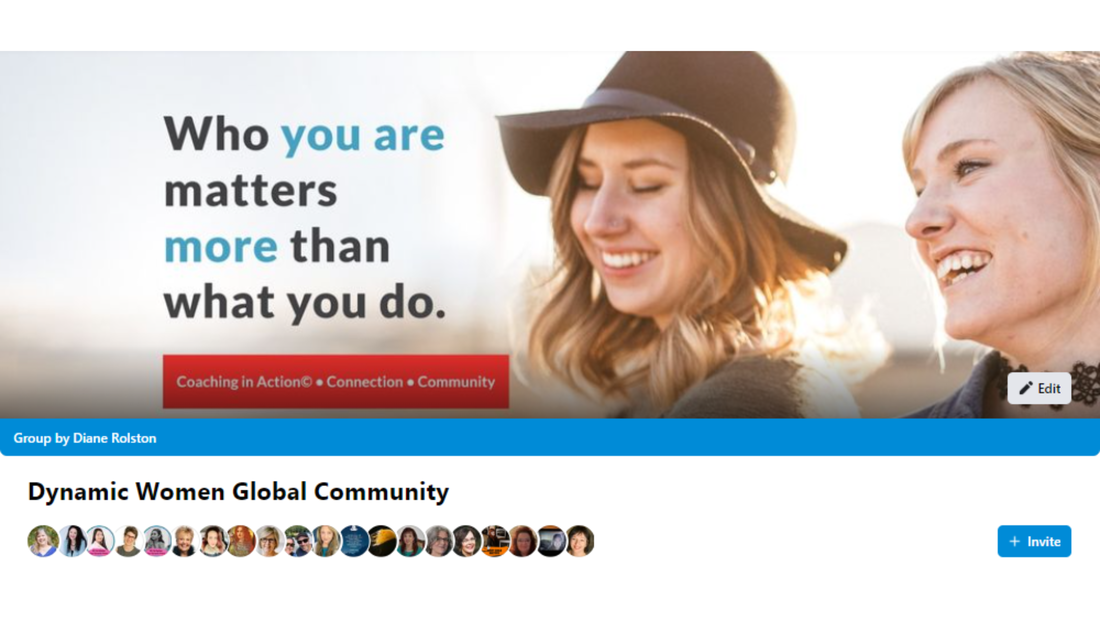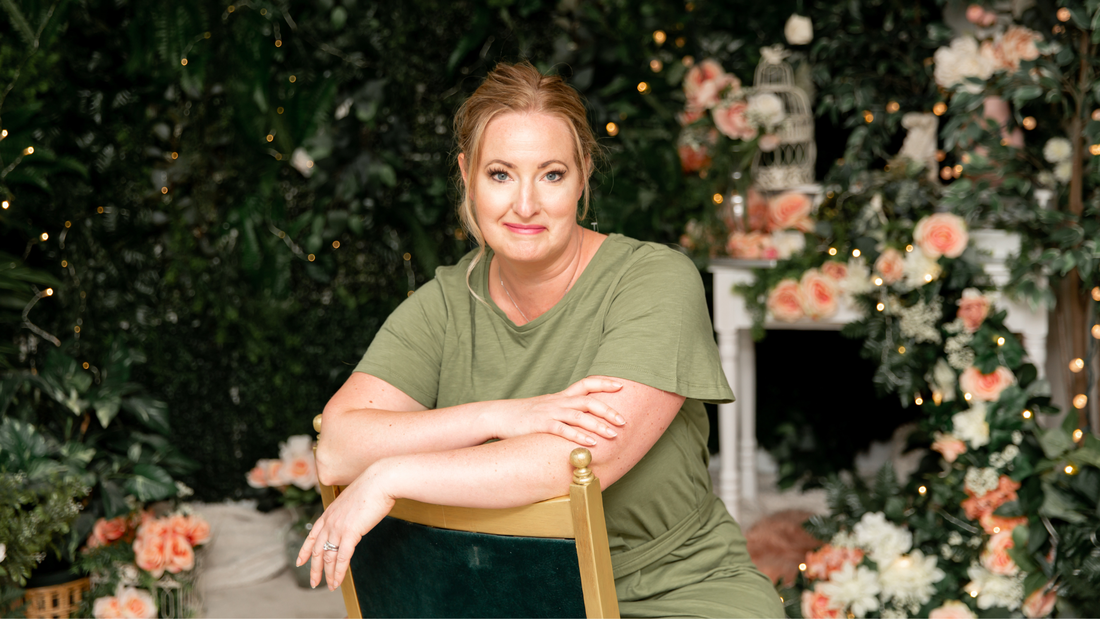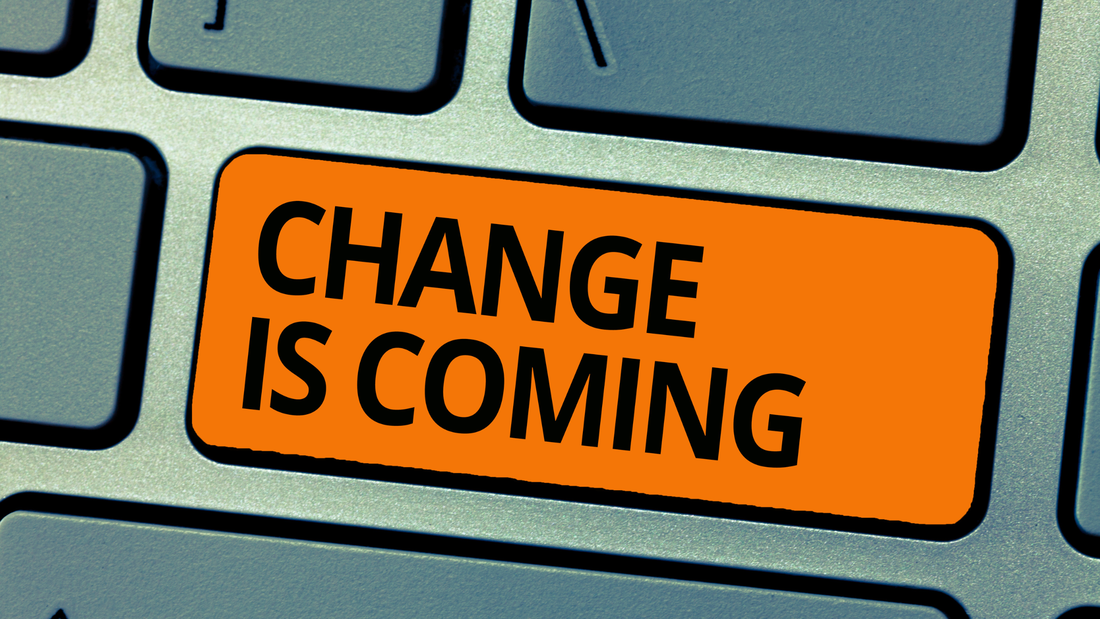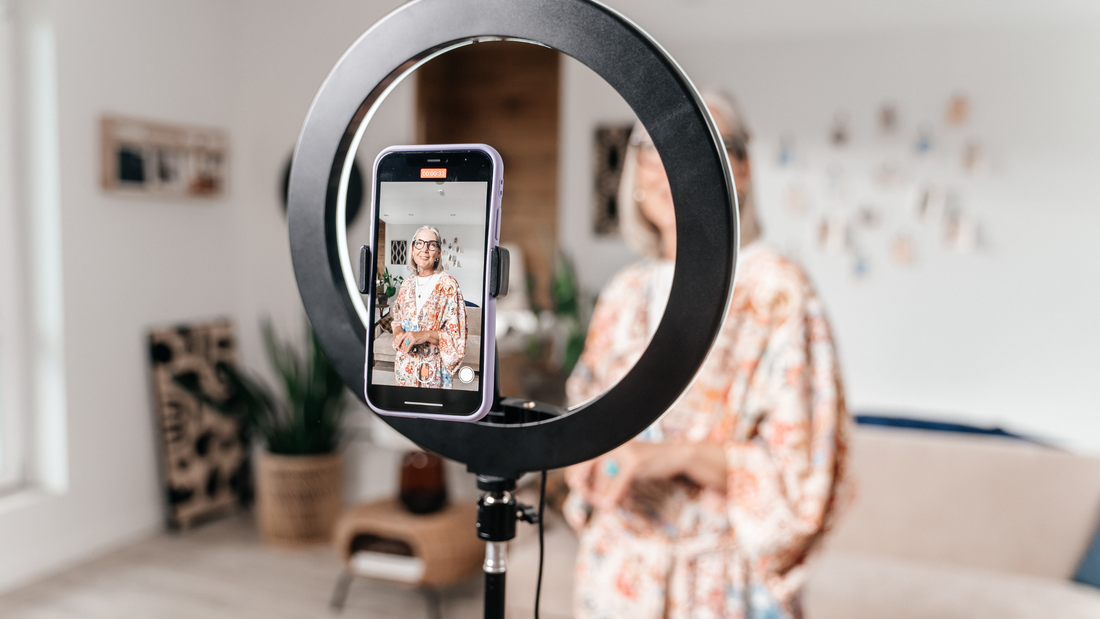5 Pieces of Advice for Aspiring Female Business Leaders Looking to Make Their Mark (Part 1)10/5/2023 In my Dynamic Women Global Community (it’s a free-to-join Facebook group!), I ask some thought-provoking questions, and I get some really amazing answers because I'm not the only one who can give great advice. Most of the ladies that I am sharing their answers with below have been clients of mine and women I know in the community. What does it mean to make your mark? I see it as “people know you”. That you've left an impression on because you're doing great work in your industry. If you're a leader, then others are looking up to you. Maybe you're implementing some things that are really helpful to your industry. With people knowing you, it's probably because you're a good person as well. There are many ways and pieces of advice that I could have pulled from, but I'm going to pull these four that were given by the women in my community and give mine last to fill in any gaps that were left because these are four really amazing ones. Over this blog and the next one, I will cover: 5 Pieces of Advice for Aspiring Female Business Leaders Looking to Make Their Mark. As you read through the blog, I hope you're thinking about:
Then get a little bit of a game plan going, so you can leave your mark in your industry, and be the female business leader you're looking to be. Advice #1: “Be intentional to reach your goals that you set each day, week, month, and follow through and if it gets stuck, ask for help. There's a lot of good help and advice out there.” - Kathy Wonderful advice there, Kathy. Let’s first talk about setting goals. We all know that we need to be setting goals. Have you set goals that are SMARTER goals? Are they Specific, Measurable, Attainable, Realistic, Timely? Then the ER, are you Evaluating and Reviewing or Resetting those goals? We all know this, but are we actually implementing it? I think that's the key thing. When you set it for a day, week, and month, the cool thing is you actually can break it down into smaller pieces. It feels more manageable. You feel more confident you can actually achieve it, which is kind of a big deal because a lot of times our mindset is going to mess with us and say, “This is too big, I can't do it”. Or you start procrastinating. But when you break it down into daily goals, you can see, “Okay, I meant to read 10 pages of this or watch one video”, and the next day, if you haven't done it, then now you know you have two videos to watch or now you have 20 pages to read. You're going to see when you don't reach that goal and how every day that you don't do something towards it, it compounds and makes you even busier. A way to make sure this is happening is to have some accountability. Kathy says, “If you get stuck, ask for help, there's a lot of good help and advice out there.” Yes, there is, but having some accountability set from the beginning is really helpful. For me, I'm going on a health journey. You may have heard me talk about this before, but I wasn't fully ready, and I'm ready now. When I was thinking, “Okay, I want to be healthier. I want to drop some weight to make my knee function better because of less inflammation and less weight that it's carrying around,” I knew what to do, but was I being accountable for that? No, not at all. Oftentimes, we're not accountable to ourselves. In this case, I hired a coach to help set my meal plans for me. She checks my accountability because I have to log every single meal and every single amount of food I eat. Am I making progress? Oh, yes! (If you want to talk about that separately, just message me. I’m happy to share more about her.) Then mark milestones. Celebrating, “I achieved this! I'm here now! I'm at this point.” Have some sort of way to celebrate your milestones, and then make adjustments as you go. Having coaches, having a group you do it with, and having an accountability partner will be really helpful. Actually, I have multiple coaches. I have a counsellor for my life. I have a coach for my life. I have a business advisor for my foundational business. I have a marketing strategist coach, and I have a marketing-speaking business coach. It's not like if you reach a certain level of success, you don't have coaches anymore. No, you just have more of them, and that's the thing. I can remember reading a quote from Oprah where it said, “When I became successful, I didn't stop having a coach, I had more of them”, and I was like, “Yes!” That gave me permission to have more, too. Advice #2 “Trust yourself, and importantly not to consider setbacks or mistakes as failure but to embrace the learning as a gift.”- Paula What a fantastic perspective shift here, Paula. Trusting yourself maybe will come a little bit more when you do not like to set yourself up for failure by saying, “If I mess this up, I'm done. I'm no good.” Those mistakes don't change who you are as a person. In the Dynamic Year Program, we actually go back through all the things from the past year. All those disappointments, frustrations, things that didn't go well, and we grab the learning from them. Even those disappointments, the things that you're like, “I’m so embarrassed by that” or “I didn’t reach that goal”. By grabbing the learning, do you know what the cool thing is? You probably won't do the same thing again. It's not just learning from the mistake, but it's then being able to apply what went well in the positive areas. If you look and go, “Wow, I did these amazing things and this was my learning. I worked well with a team, or I do better when I have accountability, or I really enjoy having a beautiful spreadsheet with colours in it that helps me to do better." Learning, as Paula said, from the mistakes and setbacks, and also learning from the positive things. If you don't have a Dynamic Year Journal yet, please do so. It's going to help you to be able to reflect every week on those learnings because the key problem I hear with people is at the end of the year when they do this, they go, “Ah, I wish I knew this in January when I was making this mistake or having this success, I could have repeated it, or I could have stopped doing it.” Yes, trust yourself. But most importantly, let the things that don't go your way, be okay. In the next blog, I will cover the other 3. Let me know in the comments what you will implement this week! Read my other blogs:
0 Comments
Are you a business owner and a mom? Or a business owner and someone who is taking care of a loved one? Because I do. I kill myself trying to be both a great parent and a great business owner. I watched P!nk’s Amazon Prime Special The line, “I kill myself trying to do both” came from P!nk's Amazon Prime Special about her going on tour and bringing her two kids with her. If you haven't seen it, it's a good one. Not just for the fact that you get to see P!nk, her music, and the behind-the-scenes, but you see how she tries to be a normal parent in a life that's not normal. My “normal” life I consider my life normal. I'm a working parent, but I have a business. It is hard, and people without children don't understand. Case in point, I was asked to be on the board for an organization I'm a part of. My answer was, “I can't. I'm just too busy and I don't have the bandwidth to be able to do it.” The reply I received was, “Everyone is busy”. I get that everyone is busy, but when you have children you’re on 24/7 needing to:
Your time is not your own. As I'm trying to build my business, I've got two children who depend on me. That's why I stopped trying to do it all because it's a lot. It's one thing when you think they're at school for most of the day, or they’re at camps. Well, over the summer, I dealt with kids being at home all the time because they don't want to go to camps, and it's the summer, so I try to continue to build my business with kids at home. Now, I will say that I do have support. I have two virtual assistants, Kristine and Karissa, who are absolutely amazing, and who do so many things for me, and that's probably why I haven't completely lost it. That's part of how my business continues to move forward, but the reality is, that you cannot be an ideal parent and be the perfect business owner doing it all alone. You can't have both at the exact same time without help. The same goes if you're caring for an aging parent or a loved one who needs your constant care and support, you are with them probably all the time. You get maybe a little bit of respite, but it's the same situation. Job of a parent: me as a mother When I heard P!nk say she tries to be perfect at both, and she'll kill herself trying, I completely related. On the parent side, my background is in teaching, education, motivation, and empowerment, and I thought, “When I’m a Mom, I'm going to have the greatest children. I'm going to organize crafts and personal development and teach them about having a business and all this”. To be honest, sometimes I’m just keeping my head above water:
But honestly, my house is a mess. They don't always do what they're supposed to do. They're learning to talk back now, and I am having a hard time with it. When I was a new mom, my daughter at the time was about nine months old. (My daughter is the eldest. I have two now they're 8 and 11.) At that time, I was building my business, and I was a mom. I would be listening to books or podcasts as I hiked with her. I would have my computer open as I was nursing, trying to learn new things, trying to reply to emails, or posting on social. Those sorts of tasks while I was also being a mom. It kind of worked. We did our best, and I didn't have too high expectations for myself. While she was sleeping, I would work the business and when my husband was home, I would work the business. I had coaching clients right through this. I took like three weeks off after she was born, which is basically Christmas and New Year's because she's a December baby. One of those days, I was nursing her because my husband wasn't home yet. I thought, “Okay, I'll nurse her before my client call.” I never book clients unless I knew my husband would be home. There was an accident on the highway, and he was stuck. I wasn't able to hear from him to know when he would be home. I thought, “Okay, he's just going to be an extra five minutes, no problem”. I nursed her as much as I could and then I put her in her crib, but she didn't want to be there. She actually didn't even want to nurse either. She wasn't hungry. I put her in her crib and she cried and I thought, “Okay, well, my husband will be here soon. Her dad will be here in just a few minutes, it'll be okay”. I jumped on the call with my client. Wanting to be the perfect business owner, I didn't delay it. I started on time and I did my best at that point to focus on the client, but the truth is, she kept crying and crying and crying. My husband wasn't coming, and I couldn't call him because I was with a client. When I finished coaching the client, he still wasn't home and she was still crying. I ran in there, and she was red-faced. At that moment, as she was screaming, and I'm holding her, and she was exhausted from crying for like an hour. I broke down, and I started crying because I thought, “Wow, look at that. I chose my client. I chose my business. I chose to look like a great professional business owner, rather than the honest truth of where I was at. That I couldn't coach because no one was going to take care of my daughter.” She was safe. She was in her crib, but she didn't want to be alone, and I left her alone. That reality really sunk in, and I was hugging her and kissing her and saying I'll never do this to you again. That's the reality of being a mom and a business owner. Even being a mom and a career woman and having other things that are happening, you don't always get to be there, and you have to make hard decisions. That day, I made a decision that I regret, but it was a really good learning opportunity for me. I thought I'm never going to do this again because at that exact moment, I was a crappy mom, and a crappy business owner. Kids need you way too much. That was a really hard day for me. That was like a low. I've had other lows since then and continue to learn. Job of a business owner: me as an entrepreneur Now on the business owner side, I can remember meeting with my business advisor. I told her about how I'm watching all these other people get ahead and get opportunities and do more with their website or their social media or whatever it was. I couldn't, and I wasn't. I was asking her, “Why am I not reaching my bigger goals faster? Why am I not doing this and that? Why am I not getting ahead as quickly as so-and-so?” Then she said, “Well, Diane, can you count up how many actual working hours you have?” I counted them up, and it was like five hours a day. That's all I had and I had no help. She said, “So five hours times five days, that's only 25 hours. How are you going to build an empire and reach all of your goals on part-time hours?” Maybe you're busy. Maybe you have other things going on, and you have to build your business in part-time hours, but do you have the same expectations of yourself? Because it is extremely hard doing it all by yourself. At that time, I was doing it all myself to do everything and get ahead at that speed, when I only had 25 hours to do it all from scratch. There is the idea of the four-hour workweek, and I've been able to reduce my time so that during the day…
Those are all opportunities for me because I have support now, but the key thing is, without help you will kill yourself trying to do both perfectly. What we can do Here are a few steps or phases you can take: Phase 1: Look at the actual usable hours you have Then think:
Because it's really hard to stay engaged with your family if you have work things to do and are trying to be both simultaneously. When they were little, I could do that a little bit, but now they know. They know when you're on your computer. They know when you're doing work. It's really obvious. Phase 2: Write down the things you need to get done and who needs to be doing them. Are there things you can pass off? If you're like, “Oh no, I need to write my own social media”. Do you? Because I don't. It all comes from my repurposing model. If you're listening to my podcast, it's actually done in video and put on YouTube. Then it’s also made into a blog. It's also then made into my social posts and my newsletter and everything is taken care of by this one piece of anchor content. If you want that to happen too, we can do that for you, with my Your Content Made Easy Program, we're still in the pre-launch period, and we still have some spots open at the special rate to get four weeks of content made every single month. We do it in-house. My team and I manage the people who are working on it for you, and you get everything: carousels, stories, short-form videos, etc. You get seven posts a week, one per day, plus five stories per week. Write down everything and then see who's going to do it. It doesn't have to be you. It could be someone else, and if you don't know how to figure that out, it's okay. I can help you with that. We got that covered. We have the systems and processes, training videos, checklists, and all the things that are needed. Passing things off to someone else is an amazing way to gain back time and reduce your stress. Phase 3: Set some goals Another thing to bring in is what I call the “perfect balance” for you right now.
Set some goals for those pieces, then plug in the tasks underneath them. Phase 4: Set boundaries around your work hours When will you work? When will you NOT work? I always tell my clients and my VAs, I'm only a WhatsApp message away. That makes me very, very accessible, but I don't mind doing quick responses through WhatsApp and setting up a meeting date for another day. That works for me, but maybe you need boundaries more around your weekends and your evenings, just so you can rest. The rest part is so important because those two pieces, your career/business, and your kids demand so much of your time and energy. If you don't already get to travel with work and have some time off, I suggest you take a night off. Once a year, I usually take myself on an overnight trip to Whistler. It's about an hour and a half for me. I'm sure you've got some places about an hour and a half from you that you can go to for one night. I leave the house early on day one, and then come back after bedtime on day two. That's what I found works great for me when I go to Whistler. I go to the spa in the morning then check into my hotel, have a chill evening, or maybe I feel excited to work on business strategy. Then the next morning leisurely breakfast, wake up whenever I want, and then move into a hike, check out the stores, and then an easy drive back. That 48 hours is so rejuvenating and life-giving. Speaking of life-giving, what other things are you doing to support your spiritual life? Is there prayer, journaling, meditation, or going to church? What is that piece for you? That could be what your soul’s missing, that would really rejuvenate you. Now I can continue on and on and on and talk about all the areas of life and all the things that you can do, but I hope from this, you get the idea that it’s hard to have these two full-time responsibilities. You're not expected to be perfect at both being a parent and a business owner. You're not even expected to be perfect at one. Know that you will do some crazy damage if you try to be perfect at both (even with help). I've been there. I've run myself into the ground, burned the candle at both ends and suffered for it with postpartum depression, and anxiety. What I'm going to do moving forward and continue to do (which I hope you do as well) is give yourself some peace, give yourself some grace, and let's look at who you want to be in these two areas in the next three to six months, and work towards that. BONUS FREEBIE: Grab my FREE GUIDE “Top 5 Tasks Busy Business Owners Should Pass Off Immediately”. Read my other blogs:
Have you ever felt like you had to fly under the radar or dumb yourself down or be less of yourself to make other people comfortable, or to not get a negative response? Oftentimes, strong, powerful, confident, and successful women have to or choose to fly under the radar, or hide who they really are, and it's really ticking me off. If you can relate, I am just like you. This topic comes from my personal experience as a woman who at times had to hide my true self, not speak up and choose to fly under the radar to fit in. I’ve also seen this with my coaching clients who definitely would raise their hand and say,
What flying under the radar means The idea of flying under the radar is to not be so high, so strong, so confident, so successful and win things so you don't get on other people's radar as someone to attack, cut down, gossip about, dislike or whatever it may be. I flew under the radar many times… This has been true for me most of my life. (In these blog posts, I'm going to be starting to share more of the vulnerable stories of what I've been facing and what others have been facing, and then the triumphant results of them.) It was true for me in sports when I was invited onto a boy's rep team for soccer, I was not accepted and no one would partner with me. In my coed soccer league, I had very harsh insults, swear words and derogatory comments thrown at me when I would take the ball away from them. I was just 12 or 13. As my daughter is 11, I can't even believe the things that were said to me that are probably still being said to girls today. In high school, when I ran for Student Council President, the other candidate tried to win by spreading vicious lies, attacking my character and making up sexual rumours. I still won, but at what cost? I had to repair my name, prove myself, and he continued to run his mouth about me even when I was doing a great job. When it came time to pick the class Valedictorian, I chose not to put my name forward (even though it was a dream of mine) because I feared I’d face the same from him, so instead I decided to fly under the radar. This has happened in so many areas of my life where I was cut down or felt negativity from others because I've been successful or confident. This is not me bragging. This is me speaking my truth in relation to you and hundreds of women I have coached on this topic. If you are a woman who has felt this, then I get it. Sometimes it's just so tiring. It's so frustrating because we're just doing our best. We're doing what brings us joy, and we're using the gifts that God has given us, and then people want to be hurtful because they are jealous or threatened by us. What I see in corporate, is women not putting their hands up for roles because if they do, they're potentially going to lose all of their friends that they're currently working with. They don't go for positions. They don't ask for a raise because of what people will say about them. Will they be treated differently? The answer usually is, “They will”. But we can’t let that stop us!!! A few years back, maybe four or five years ago, I wanted to interview a bunch of women. Some of the requirements were making multiple six figures or seven figures and some sort of leadership role. What I found is in these interviews, is this concept kept coming up over and over and over again: Life is just easier if I fly under the radar. This made me so sad and pretty pissed off! Life is easier and more enjoyable if I don't stick my neck out, or if I don't win things. That saddens me and it also scares me. It saddens me because these women are not living at their full potential for fear of what other people will say, will do, or the repercussions. There should not be repercussions to doing well. Yes, you win a sport, you win a game, you are the gold medallist, whatever it may be, there will be people who are jealous of you and there will be people who wish they were you. But to be in a workplace with coworkers, you may have other people treat you differently, or have it out for you or in my case, other people in the industry coming after me. What kind of world are we in where we can't just all do well ourselves? What if everyone just did well and stopped putting their negativity on others? Sad and scary It saddens me because people, specifically women, are settling and playing small, me included, because it was just easier. It's just easier to not be the one in the public eye. I feel like I've been pulled back the past few years. It takes a lot of stamina. I don't know how some of the famous people do it. It takes a lot of emotional and mental stamina to be able to be in the public eye, to take criticism and have people cutting you down for no reason at all. They don't even know you. It saddens me that women aren't feeling like they can step up and step into these bigger roles and play big. It also saddens me for the women that are around them, that are watching them and thinking, “Well, if she is not going for that, and she's more confident than me, more successful than me, or more experienced than me, then I shouldn't either.” It's got this trickling down negative effect. Plus, not just women to women or peer to peer, but what about the girls coming behind us, the future women who have fewer role models to look up to? I know for me in the teaching side of things and coaching side, there are a lot of women. It's really easy for me to look to role models in that way. There are a lot of great female speakers, but not enough that we see. Not enough on the main stages. How many times has a woman gotten on stage, and I've heard people complain about her outfit, complain about her voice, complain that she's too confident? That's the sad side. Do you know what the scary side is? The scary side is gender equality and pay equity, these things are not going to get any better if we diminish ourselves. I know we're not doing this on purpose, but we're doing this out of survival. There's just so much going on. It's different for everybody, but we’re trying to be perfect:
We're trying to be the perfect everything. It's not just that we're always trying, but it's kind of expected. If we're making an effort to do all these things, how then are we also going to show up as our fullest in these places when we know that there's a chance that people will take us down? Don’t fly under the radar - I want to interview you! I don't want us to fly under the radar anymore. What I'd love to do is see us soar. BUT HOW? I’m going into research mod again. I want to interview maybe 10 to 15 women who are making six figures or multiple six figures or seven figures (I only say that because you've probably been established in your business or your company and have a lot of experience with this, and you're playing at that higher level). I still sometimes say to my business advisor, “I thought when I was more successful, brought in more money and had more clients, things would be easier.” But the truth is, new level, new devil. You don't even realize who's going to come out of the woodwork after you. I don't say this to scare the people who are starting their business and such, but I'm just given the reality of it. If you want to be interviewed, email me directly at diane@dianerolston.com. You have to be in your position, your company, or your own business for at least a few years, not just in the startup stage, unless you've just come from having a business or something for more years. If you're in some sort of leadership position, or you’re on your own time, and you've had an experience where you felt, “Man, it would just be easier to just lie low a little bit, to not put myself out there.” I want to talk to you too. I want to have a conversation, doing some research for some really exciting stuff that's coming up. You will not only be part of the interview, but I'll share the results with you. I'm also going to bring all of these ladies who can be highfliers, but sometimes feel like it's just easier to fly under the radar. Stay tuned for what is coming with this and reach out if we can have a chat about it. BONUS FREEBIE: Grab your “Top 5 Tasks Busy Business Owners Should Pass Off Immediately”. Read my other blogs here:
Usually, my blog topics are “1,2,3 ways to…” or “5 steps to…”. But this week’s blog is different. There have been some changes over in my world… and I’m going to share the good and the bad. Let’s Look Back on the Hard Times Since 2019, I haven't fully felt like myself. Things have been off. It’s felt like I have been pruned. I have been changing, and things have been different for me. I know I'm on the verge of something big. You may have read or heard me share about the hard parts. COVID happened and I was in Ontario at a hotel about to deliver a whole week's worth of different events for my current paid clients, potential clients, people that we're at the start of their journey working with me, and also for my Dynamic Women Community. The year before that week was about an $80,000 week, and I was on target to be $120,000. I had to make the conscious and socially responsible decision to shut everything down, so I lost on the revenue. I was also there visiting my father who had cancer, and he wasn't doing so well. Then I come back home to BC and my kids were off school due to Covid, and I'm in charge of them as well as figuring out how am I going to adjust to this being only in a virtual world when I was in the in-person event space. I made some good changes, then summer comes, so my kids are around me full time. I do have a husband, but he's working outside the home. Then we visit my family in Ontario and my father goes into palliative care. Shock. Surprise. He had a blood infection, not cancer-related. He then passes away seven days later. I'm grieving, and I'm getting things back going into my business and then my Facebook account is deactivated, and I lose all of my Facebook ads. A lot of the stuff I built up in my business, including all of my friend connections and client connections. Many hits to me personally and to my business. These hardships and feeling pruned caused me to pull back a little bit and not be so in the public eye. When I was running the Dynamic Women Community's live events, we were doing eight different live events every single month in eight different locations. With these changes, I feel a little bit like I've been in a cocoon for a while. I haven't been as public. It definitely was public doing eight events a month, as well as lots of speaking engagements. I had a lot of stuff happening, and if I wasn't already feeling like myself, boy, was life really hard and I was in a bad place. I was gaining weight and didn't feel like I had the emotional or mental capacity to handle a lot of stuff, which is shocking because I used to have a lot going on, multiple events every week, and be packed all day. I’d be driving in traffic to get to an event and attending other people's events, hosting my own events, going to speaking engagements. Always on the move, and I realized I just don't have the same tolerance for stress and risk. Normal things for me like traffic started to stress me out to the point of not wanting to go. I wondered, How do I then navigate this world, coming from a place where I'm not myself, and I can't handle things at the level I used to be able to handle which was normal for me? Maybe you’ve felt some of this. Well I want to let you know, positive change is always around the corner. The Good Changes Yes, some great changes did happen: offering my programs at a higher level, celebrating over four years with the Dynamic Women Podcast, publishing another collaborative book and the Dynamic Year Journal and adding in the virtual assistant programs VA Made Easy and Your Content Made Easy. I'm currently in the process of releasing the weight and am already 30 lbs down. I'm feeling better, and am starting to get my voice back. I’ve been showing up at events and I am starting to feel the energy and spark coming back. I've been on this journey of keeping the business going and actually quadrupling my income, which has been really exciting. However, I know that where I'm at right now is not the next chapter and that the next chapter is just about to be opened. I've been investing my time over the past months doing some reflection and reading so I get more clarity on my brand and locking in what I stand for. The Turning Point I was asked by one of my clients in my Facebook group, the Dynamic Women Online Community, “What was the turning point moment for me?” It could have been the stand-up comedy class I took back at the end of 2022. I actually performed in two shows back to back in two different provinces, which is pretty crazy. I did one in BC with the class then I flew to Calgary to perform at the Canadian Association of Professional Speakers (CAPS) Convention Charity Night. It's not like they were paid gigs at a comedy club, but they were still so invigorating. This ignited something in me…I know there's something bigger. There's something edgier coming. Follow the Energy I know it's important for me to follow the energy. What I am in alignment with, invigorates me and excites me. That's what got the Virtual Assistant services going. I love when I can use my business strategy, life coaching, and love of efficiency all together to support my clients and really propel them forward. The Being Side In July, I was at the CAPS summer party, and was sharing with the other members that something big is coming. But I couldn’t say exactly what it is. This can be frustrating because I’m usually a doer. I am A-type. I am driven. I am the type of person that's like, “Okay, here’s ABCDEFG, I'm going to do all of it. Let's go, let's do this!” But to get the clarity, I needed to be in the BEING. The being and doing is the co-active coaching model I was trained in. I’ve never been super strong at the being side. I'm very, very strong, on the doing side. I've had to really tone that down so I could open up the being side, which is the listening, the intuitive, the asking questions, rather than the diving forward and getting things done. I do know this next iteration of me and what I'm offering, will still be in alignment with life coaching, business consulting, and virtual assistant services. Plus, supporting life balance, women's empowerment, business scaling and systems. I just haven't figured out what that one thing is yet and what that looks like, so I'm giving it space and that's hard for me because I want to jump in, and I want to DO. Right now, I'm just BEING. Being More Vulnerable My clients, audiences, and friends know that I wear my heart on my sleeve, I’m extremely transparent, and can be vulnerable, for sure. But often how I come across is polished, and put together. Maybe you’ve known the vulnerable side by listening to my podcasts, watching me on YouTube or hearing me speak for longer than a minute. You hear more, you see the walls come down and you're let in. You're going to be let in a lot more! The reason why I haven't before is not because I'm hiding, it's because I don't believe that everyone online should be completely open and transparent and vulnerable all the time. People who don't know you haven't earned the right to know these things about you. As I shared before, with my clients, in my close circles, in blog posts like this and even at my events, I am an open book. I share. I pull back the curtain and talk about the hard moments, over the past years. But maybe not enough. I want to Provoke! I realized I've been doing a lot of teaching, and a lot of training. Instead, I want to really step into the being side more, do more storytelling and really let out more of the edgy side of me. That part fires me up. I just heard our CAPS National President, Lorne Kelton, speak about how speakers should be persuading or provoking and if they're not doing that he asks, what's the point? I want to provoke more, and I feel like you want to be provoked. You want to feel something. You want to have something said that causes you to get into action and pushes you to feel motivated and inspired with your goals, in your life, whatever it may be, and I'm in for that ride. Imagine being in a raft on the rapids. I want to be your guide, so you can jump in confidently. Let's have a wild ride. This is the change that's coming. I don't know what it looks like yet, but I'm here for it. I'm excited! BONUS: I have a new FREEBIE “Top 5 Tasks Busy Business Owners Should Pass Off Immediately”. Grab it today! Read my other blogs here:
Are you enjoying your summer? Do you love vacation time? Or even just like long weekends or a day off? But then you feel like, “Ah, how do I get back to my regular routine when my routine has been so thrown off by summer/vacation?” This is also true after being sick, surgery, supporting someone else and being busy.” This was a question that was asked in my Dynamic Women community. You could list a billion ways that your routine gets thrown off. The key thing is you know you want to get back to things, but how? Follow my 3 Phases to Bring Back Routines After Summer!!! For many of us, now is the time that kids go back to school. Or at least if you're not a parent, you're thinking that summer is winding down, and you’ll need to get focused back on your life, on your business and back to routines. Phase 1: What is your routine? First, I invite you to think about your routine. What is your routine? What are the things that, when you're off of routine, you want to get back to? I'm going to list some of the things that I've heard from my clients as we're ending summer. A lot of them have said to me,
For the moms, dads, parents, or caregivers out there, you're probably thinking, “As soon as the kids get back to school, I'm going to get myself back into my routine.” Ask yourself, what are the parts I want in my routine? It could be:
Soccer is my hobby and passion and it starts up again in the fall, so exercising is part of my routine that needs to come back in. Maybe you have a hobby of painting, playing the piano, or rock climbing. Whatever it may be, you want to get back into the swing of things. How do you do this? The first questions should be, “How do you prefer to do it? What's your style?” Phase 2: Find Your Best Approach Approach #1: All at Once You can go all in and bring back all your routines at once. Does that feel good for you? Let’s look at the pros and cons or the costs and the joys of that style. Now, you might already be thinking, “I don't want to do them all at the same time.” The cost here could be that by doing all of them at the same time, it feels overwhelming. If you are a highly sensitive person, anxious, or someone who has trouble with change, then this might not be the best option for you. But the joy of this approach is that when you tell yourself, “I'm all in. I'm doing this. I'm committed.” The joy of being committed and going all in is that you can habit stack. One habit will trigger another positive habit. For example, going to bed early is going to support you getting up early and going to the gym. But if you decide to get up early to go to the gym, and you don't to go to bed early, the night you is screwing over the morning you. Think of it that way. Approach #2: Piece by Piece The other approach, as you can probably guess by now is piece by piece. Think, “What's the first habit that I need to bring in”. This could be the first habit that's the easiest to bring in. It could be that habit that is the fastest to bring in. It could be the habit that you are looking forward to the most. It might be something like a walk in the morning. If a walk in the morning is the first habit that you want to bring in, then you get up and go for your walk. Maybe you spend the first three days making the walk 1st thing in the morning. Then after you have a little bit of time getting that walk in, you bring in the second routine or habit. That could be, “I want to have my healthy green smoothie” so then you start making the smoothie. The cost of this approach is that it's going to take you a long time to really get it all going. Because if it's bigger habits, I would say you only do one habit and you don't learn anything else until you're actually doing it, and you're sticking to it. Look to the Five Stages of Change, to help you to move through this process a little bit easier. If you don't know what the five stages of change are, it’s in my Dynamic You book. Plus, you miss out on the opportunity of one habit supporting another habit. Some things might be harder to do because you haven't done the other habit that really goes well with it. Then the joys of this are that if you’re a person who has trouble bringing on new habiys/routines, your willpower is terrible, or you're not able to be committed, then this can be an easier approach. Approach #3: Bring a whole bunch of habits that support each other For me, I want to jump in full force to most of the habits and then add a few layers of habits and routines after. Maybe that's the approach you take. You bring in a whole bunch of habits that support each other. Then after that, you add in the other ones. For example, right now, I'm currently going to bed earlier so that I can wake up earlier. First thing in the morning, I'm reading, doing my daily devotions and I'm eating healthy food. What I'm going to bring in later, is my full morning routine with visualizations, affirmations, exercise, drinking more water, weight training, and journaling. With these three approaches, ask yourself, “Which feels better?” Phase 3: Get Started Now that you know the routine you want and the approach you want to take it’s time to get into action and have success with your routine. Step 1: Choose a start date: Decide for yourself, “When is my start date?” If you're doing everything at once, give yourself a day or two to prepare. If you're going to eat healthy and go to bed early, maybe you need to change your schedule. Maybe you need to go shopping to get this ready. If you want to do it piece by piece then choose which part will be first. Step 2: Prepare As I mentioned, you have to prepare your schedule and the things or tasks that you need to put in place before the routine can happen. If you want to start exercising again, maybe you have to go and join a gym, or you need to go get better running or walking shoes etc. To eat better, you need the right groceries. To start reading, you may need to go to the library and pick up a book because you've read all of yours. There are a few options here for how to prepare. Step 3: Have accountability You've chosen to do it, you've picked your date, you're preparing, then maybe you need some accountability. Accountability with a friend, with an app on your phone, with your coach, or someone to do it with. If you want to be walking more, you can have a walking buddy or a gym buddy, or you have a friend that you share prepared meals with. Step 4: Get into action You've got a bunch of options there for getting into action. That's actually the fourth stage of change. Start doing what you said you’d do, on the day you said you’d do it. It’s pretty simple. Make sure you don’t put off starting as it will make every day after harder. Step 5: Check-ins Congrats! You have a start day, you've prepared, you have some accountability and you got into action. Now you need some kind of milestone or some check ins. Maybe after a few days, you check in by asking yourself, “How is this going? Do I need to change anything?” Review where you've been. Evaluate and say, “Is this going well for me?” Then know that if it's not, you can just make changes. Maybe you need more accountability. Maybe you need a better plan. Maybe you need to add in another habit to support you. That's okay. Preventative Measures Let me tell you about preventative measures so that this doesn't happen to you. A lot of times we have things that we do in the morning that are part of our routine. But we go on vacation, we just don't have time. Maybe our routine in the morning was an hour and we don't have time, or we're running off to work and we just don't have time anymore. During that period of busyness or vacation, rather than completely scrapping the routine, could you do 10 minutes of each of those things that you normally do for much longer? 10 minutes of journaling. 10 minutes of reading. 10 minutes of running. 10 minutes of visualization. Whatever it may be. If you feel that's too long, can you do five minutes? How about four minutes? Instead of going for a 30-minute run, could you do a minute of jumping jacks or burpees, and then a minute of journaling, or one healthy meal a day? If you don't want to get out of your routines, let me encourage you that the next time you go on vacation or it's a busy season, that you still keep your habits in a minimal way. This doesn't mean you have to eat perfectly on vacation or you have to exercise every day on vacation, or during a stressful time, you have to make sure you're doing all of these things. However, if you do them just a little bit, you’ll remain committed to yourself and your routines. Your body is kind of committed and is remembering that “Oh, I like these things. I want to do these things” so that when you actually have the time, you can just extend or do it more. There are many benefits, and you’ll end up saying things like,
It's so much easier to do a little bit of your routines to stay on track rather than trying to get back into our routines. Now if you're coming back into September and want to get back into your routines and you feel like, “Darn it. I didn't do the preventative measures.” Not a problem just start at Phase 1. Wrapping Up Going through the phases at any time will work for you. It’s ok if you fell out of your routine. Just start again! If I can support you in any way to make this an easier transition or to support you in answering another question you have, drop them below or reach out to me by emailing me diane@dianerolston.com. I trust this will help you to get back into the swing of things and back into your routines! BONUS FREE EBOOK: Learn the 3 dangerous trends that professional women face that keep them overworked, overwhelmed, and pulled in a million directions. Read my other blogs:
In my last blog, I shared the five things I wish I knew before I built my first program. Now, I’ll share with you the five things I learnt from creating my first program that bring me more sales. The reason why I'm doing this is because I hear a lot of people say,
Everyone is putting together courses (and I’ll also call them programs). However, there are a lot of programs out there, but there are not a lot of that are making money. There are not a lot of courses that are really well-developed. I wanted to make sure that I shared this with you because you're not just making a course for the good of the world, right? Yes, you want to leave a legacy. Yes, you want to teach and help people and of course, if you're not doing it for those reasons, as well, then don't bother. However, you are in it to bring sales. I first wanted to title this, “The Five Things I Learnt from Creating My First Program That My Clients Love,” but I want you to think about the most important thing to you. That is a course or a program that's doing well. If your clients love it, it's doing well, and doing well means bringing you sales. Either they're loving and they're buying your course, or they're loving and buying someone else’s program. Then they’ll either tell others about yours or someone else’s - you pick! In these five things I learnt, I’ll go through them bit by bit. I'm going to share some examples from my course creation time and just so you know, I do have a background in curriculum development and training. Some of the stuff I talk about comes from that experience, some just comes from me creating programs in my business and learning front he experience, feedback and results. I do encourage you to get some support to be able to design a course and create a course in a way that has your students or your learners' best interests in mind. If we haven't met yet or you know me, but you don't know my background, I've been running my own business since 2010. I've had multiple programs and the programs are a mix: one on one, group, in-person, online only, with audio, with video, with handouts, with an action guide, with an actual book that goes with it like Dynamic You. It could be a one-day or a two-day retreat, or something that spans over six weeks, six months, or even a year. I've had different programs. I've had different courses. I've had more success with some than others. This is where these five pieces are coming from. 1. Include “Real” Examples The first one is to include real-world examples, real-life examples, or real people's examples. In the beginning, you may not be able to come up with your own because you don't have clients that have gone through it yet. But have you worked with a client who had a great result or experience? Then share that! When you bring in these world concepts or scenarios, it really helps the learner to see the practical application and see how what you’re teaching would fit into their life. This also gives more meaning to what they’re learning. When your clients see real examples that it works, it can enhance their engagement with the program. It can also increase retention, which is where they continue to come back and purchase from you. Real-world examples are crucial. When I did Dynamic You, I actually had my clients in the program then become part of the book, which then were shared with future clients. That helped them to connect and say to me, “Wow, I'm not the only one that feels that way.” Sometimes I share examples from my business that have worked or not worked or lessons I've learned. Also, I share where I've seen other people do it or other clients do it. Always get permission though before you share any client-related stories. 2. Incorporate different learning styles People have different learning preferences. I personally really enjoy working with others in a community setting. The reason for that is, I don't really want to just sit and learn on my own. I like discussion, and I like to be verbal in my communicating and my processing of the learning material. Here are some ways you can incorporate some different learning styles. You can bring in videos, interactive exercises, quizzes, case studies, or discussions. This will engage people with different learning styles. Also, here's a bonus tip, if you are selling something, then I encourage you to sell it in the same way that you will be presenting it or teaching it. If you're teaching a live one-day event, sell it at a live one-day event, like in person. If you're going to do it online, then you should sell it online beacuse you already know your people like to learn online. In doing that, you're going to attract the people who are already used to consuming content in that way. When you incorporate different learning styles, it doesn't take a lot more work. You're just presenting the material in different ways. If you were recording a video, then offer the transcription and then you can even pull the audio and present it as an audio rather than a video. That's even three right there. You can do group calls. That's usually how I like to do it. Group calls are when there's a group discussion, there's a Q&A, or there are breakouts for discussion. Introverts aren't going to love a big group discussion, the extroverts will love it. The introverts will want pair work or smaller groups with the ability to type in the chat. Try to switch it up because even though someone may be okay with all different types, you don’t want them to be bored. What's that expression? “Variety is the spice of life.” Variety makes courses and programs more interesting, and I believe increases motivation as well. 3. Provide assessments and feedback It's not just them providing an assessment of you and the course, but assessments of how much they have learnt. Let's look at this further. Assessments. I love to do assessments at the beginning to find out where people are coming from: to find out their problems, obstacles, and what they don't know. Then at the end, I will give them a similar one where we can see their growth, the improvement that's happened. In Dynamic You, there are nine pillars, Confidence is one of them, so asking how confident are you on a scale of 1-10 at the beginning, and then again at the end, shows there growth. That's a very simple way of doing an assessment from the start to the end. Also, do little assessments as things go along. Regular assessments are brilliant because they’re going to help you gauge their progress of how they're doing, and if they really are understanding. Plus, asking throughout the course, “Do you have any feedback, anything you need, anything we can help you with?” This might give you some areas for improvement, and it’s beneficial to be refining our courses. Again, including quizzes, assignments, interactive exercises, discussions, and maybe hot seats, are ways you're going to provide an assessment to see if the people are actually getting what you're teaching. In Dynamic You, I also had an implementation activity, every single pillar, which was really cool, because it had my clients implement what I was teaching by applying it and engaging with it. In that implementation, they received deeper learning and then they had more questions, which helped them to be more knowledgeable about that pillar. 4. Use a learning platform In the beginning before I had Thinkific and before I had learning platforms, I used my website. I had a hidden page on my website that was password-protected, all special pages were password-protected with the same password. I would just give my clients the link and the password, and they were able to access it. However, I couldn’t put all of the materials there for the whole program because we were going through it week-by-week. When the time came for the next module, I actually had to go and manually upload the content every single week for them to see it. I then moved over to Thinkific, so it would automatically drop the modules. A learning platform is also going to help you to integrate all the different multimedia elements such as images, videos, audio clips, interactive visuals, handouts, downloads, action guides, or workbooks, all these different modalities. When you have a learning platform, you can also do things like quizzes and assessments. You can have a place for them to comment and share or ask questions rather than just a Facebook Group. Now, I’m using Groove. I love it. They have a lifetime option, so I replaced Thinkific, ClickFunnels, my membership site, etc. It can be your CRM, as well as replace many other software and platforms that are out there. Learning platforms can also sell your courses for you. This is great since they have their own network and also, when courses are sold on the platform, it immediately gives your clients access. This is especially great when you are doing a limited time they have access to it or with memberships where they need to be billed every month. Grab a learning platform to do that. That's definitely a way to uplevel your game and to just do better for your clients. 5. Continuously update and improve Just because you run a course once doesn't mean it's perfect. I am yet to hear from someone say, “I ran it once and didn't change a single thing after.” You're probably going to change something, and that's good and you should because the learning landscape is constantly evolving. That can mean how people learn, the platforms that are available to them, and the ways to do it. In the beginning, I had handouts. They were just Word documents. Then I thought, it'd be way better to put all of those separate handouts into a booklet, so I I made a booklet and that was great. But then people had to print it off, and so I thought, we could make it fillable. Plus, the way I deliver the materials has improved. In the beginning, I did Dynamic Year as a 45-minute workshop. It is now turned into a four-week program with quarterly check-ins, and I've also done it as a retreat. There are so many different ways I can deliver it. Getting the feedback that I mentioned before is helpful to finesse your programs. Also making sure you have the best learning platform, getting feedback on it, incorporating different learning styles, really all these pieces that I've said, that's how you should continuously improve. Here's another BONUS TIP: go back to the graduates of your program and give them a 20% off code or a 50% off code. Why? Because you've made it even better, you've added more things, you've adjusted it, you've maybe given more real-world examples. It makes sense that you would offer it to people again. In a lot of my programs, clients will get a level higher or deeper when they go through it again, so if they want to continuously get better, then they can just keep taking it. Don't consider your course or program, something that's locked in. I've taken some people's programs and I can tell based on clip art and other things that they were made like 15 years ago. I don't feel motivated to be doing something that I know was created so long ago. Yes, some things stand the test of time, I get that, but all of your elements in the program should be updated, even just in appearance. I encourage you to be a constant learner yourself. Stay updated with new developments in your field, your industry and the topic you're teaching on. Gather feedback from your learners so you continuously improve the course. It doesn’t mean the course is bad, it might just be that they want a little bit more of something. For example, they really love Q&As, and they want more, or you found that having quizzes after each module rather than every other module is more helpful. So great, add them in. When you continuously update and improve your course, you can also charge more. That is a plus making it even more worth it. Wrapping Up Make sure that you’ve also read my previous blog, because this blog and that blog go hand in hand. If you're stuck, and you're wondering, “How do I make my first program amazing?” or “How do I make my 100th program even better?” reach out to me, and let's have a conversation. Bringing me in would be a support to you, not only in how to put it all together, but the learning objectives, the platforms to use and other strategies I use so I make one thing and turn it into five things. Repurposing and being more efficient is going to save you money at the end of the day, and in turn, make you more money. Send me an email at diane@dianerolston.com. All the best in making your programs! Read my other blogs here:
Have you been thinking about making your own course or program and selling it? When I was helping a client outline her course, I was thinking, “What are the things I wish I knew at the beginning of making my program that would have helped me out a lot?” So I’ll share with you the five things I wish I knew before I built my first program. Course Building When I say “program building”, it might sound a little bit boring or even difficult. Whether you have already built a program or if you want another, you probably have a message to share, and you want to put your knowledge or your expertise out there for your clients to enjoy. Plus, you're looking for products to sell. I’ve been in business for over 12 years now, and close to the very beginning, I created some programs. They’ve been all different kinds of programs styles and lengths:
In them, I have videos, audio, handouts, and guides. I do have a background in curriculum development from my previous job. But there are things I learned that are essential to your success, but make complete sense when you're a solopreneur, a business owner, or someone that just wants to have a few courses or programs on the side. 5 Things I Wish I Knew Before I Built My First Program 1. Clearly define the learning objectives Your clients want to know, “What am I going to learn by the end of this program?” I learned to ask this from my background in curriculum development. The problem is that a lot of times the person creating the program knows the learning objectives, but they don't always share them with their clients/students. Don’t know what your learning objectives are? The question I learned from a coach that really helped me was, “What is your client going to be able to BE, DO, or HAVE by the end of your program?” Then you have to put your learning objectives in the marketing. When you clearly define the learning objectives and share them, your ideal clients will know if this course is right for them because it’s clear the specific goals they're going to be guaranteed to achieve. Another benefit to you is that when you know the learning outcomes, then you can reverse engineer your program, “If I want to have them achieve these learning outcomes, What are the steps to get here?” It's going to help you develop the outline and figure out all the content that goes in. 2. Know WHERE your audience is at Don’t just know WHO your audience is, but also know WHERE your audience is in their growth, their goals and their knowledge of your area of expertise. You can ask yourself these questions:
You need to know where they're at, their needs, their background, and the skill level of your target audience. Knowing who they are and where they're at is so important because it will help you to tailor your program’s content to them. Including, your language, the examples you give, the timeline, the intensity, the activities, and the level of you teach it at. A lot of times I forget that the people I’m teaching have no experience with it whatsoever, and I talk at a high level and I throw jargon in. For example, I might say something like “Yeah, okay, so you set up your email sequence from your lead magnet or your email capture and so you'll want a really good CRM for your campaigns.” I've used a whole bunch of lingo and a whole bunch of words that many don’t know. They don't know what:
I have to teach all of those things by including them in the program. If you're wondering what those things are, a lead magnet is a gift that you give to someone so you could get their email address, for example a quiz or checklist. A CRM is a Client Relationship Management tool like MailChimp, Keap, Infusionsoft, Kajabi, and Constant Contact among many others. An email sequence is a grouping of emails that go out one after another that are all programmed and set to go in automatically in your CRM. (You can check this blog to know all things lead magnets!) You have to know where your audience is at because what you might realize is that you're actually teaching at a super low level, and you need to speed it up or the opposite - teaching at a super high level that you need to dumb it down. For example, the program you're actually creating it a level three, and you need to create a level two program and a level one program, or it's a sequence where they learn A, and then they learn B, and then they learn C. 3. Chunk your content into digestible units Break down your content into smaller modules and lessons. A lot of times people want to just throw these one or two-hour lessons together, but if you bring them into manageable units of 10-15min, it allows your students to have that breather of “Okay, I've learned this. Now, I'm going to take a pause, and then I'm going to go learn this”. It helps them to easily understand it more and to retain it, which is your goal. When you do that, it also gives them a little dopamine hit of feeling like, “Check, I finished video 1. Check, I finished video 2. Check, I finished video 3”. This also helps them to be able to use a small pocket of time to get ahead, rather than feeling they need to carve out 2 hours to get the next piece done. It also helps you to record videos/modules piece by piece in the time you have. 4. Use active learning techniques Passive learning is when your clients are sitting back, and they're being talked at. That's kind of the normal university professor lecture style. However, if you use active learning techniques where they are going to be participating, you're encouraging them to be actively engaged. That's actually where I've had the most success by having them take the knowledge, engage with it, engage with me, engage with activities, then go apply that and have an implementing activity that they do. Then they can apply the knowledge and actually learn and know it. Another thing you can do with this is have them teach someone else in the group a piece of content because if they know how to teach it, then they know it. Don't just have them sit back and be quiet. We want to have them engaging, and so do recall activities, for example, asking them questions, having them answer, having them tell you their thoughts in the class. You could even give them quizzes and case studies to solve. 5. Test your course The last one is testing your course. This is not beta, but before you launch your course, you can do a pre-launch, or you can do a small launch (that's like a soft launch and not public) that you just test on a small group of learners. Three options are to put it out to a part of your list, privately reach out to some clients, or promote it in just a few areas. You don't have to do a beta course if you definitely know you will help your clients achieve your learning objectives. I have another blog post about not having to do beta and being confident that first time around with your program. I suggest you go and read that blog post. By doing a test run of your course with a small group, you're going to be able to identify areas of improvement, which is really important. Then you can make the revisions before you put it out properly and full-on market it. Here's an integral tip here: check the name of the course and make sure that it's actually something that people are wanting. I had named a program “Perfectly Balanced” and people felt that, “I'm never going to be perfectly balanced”, but what I was saying in the program is we're going to find the perfect balance for you. That's too much explaining, and so I wish I tested the name first. I already put the name all over the marketing, in my videos, in everything. It was a dud. I had to change it. Then it became Dynamic Balance instead, and it did very well. By testing it on a small group, you can really see that your target audience is going to really enjoy it or going to get a lot out of it and meet those learning objectives. Bonus Tip: Always market and sell your program or your course before you fully develop it. This means you can have an outline, you can know your learning objectives, you can talk about where your clients are at and where they'll get to, but you don't have to record every video, create every handout and do everything in developing it. Sell it, make sure people want it, then you're paid to develop it. Wrapping Up: I hope you enjoyed this, and you're going to take these tips into your first program or 10th or 100th program. Make sure to watch out for my next blog where I am going to talk about the five things that I've learned in creating my programs that my clients really love. Read my other blogs:
Are you wondering how to have better results on social media? I'm going to talk about these three actions that you can take for better social media results. They don't include Facebook ads or having a Facebook group. They don't include a lot of your time, just around 15 minutes a week. That's what I do, and I'm going to share how it's possible for you, too. 3 Actions for Better Social Media Results 1. Post consistently Posting consistently means posting daily to your feed: LinkedIn, Instagram, Facebook, Twitter, TikTok, or whatever platform you're on. You don't have to be on all of them, but pick a few and post daily, every single day, and make a post. Then, put something in your stories or the short form video section like reels or YouTube shorts, whatever it is called on whatever platform you are on, post consistently. Some people have said content is king and consistency is Queen – well Clarity makes both 100% better. So please know the content you provide must come from your clear branding messages. That is going to get you better results. Why? Because when you post your clear message often, it is going to help the algorithms to promote you more. As much as it's not paid ads, it's not sponsored posts, you are going to be able to get more engagement by posting consistently because people are going to see more of your material. They’ll then have more options or opportunities to be able to interact with your posts, which means that more of your stuff is going to be seen. Posting consistently is important for your first impression. How many times have you met someone, you connect on social and then you go check out their platforms? What would you think if they haven't posted for a week or two? You may say, “Oh, well, I like this content, I'm going to keep going looking”. But then you start scrolling through, and you see it's going by months, not by days. Then it’s suddenly a few years back, and you realize they haven't done much online. Now you may think, “Oh they’re not very serious about their business,” or “Maybe they're not really doing their business full time. It could just be a hobby business.” That's something to think about. How do others perceive your business based on your online presence? 2. Share different types of content These can be video, audio, text only, text on an image or meme, quotes, YouTube Shorts, IG/FB stories, TikToks, or IG reels. Now why a variety of content? Sharing a variety of content allows people who like different types of content to consume it in their preferred way. Plus, I might watch a video from one person and then read a post by the same person. It could even be on the same content. This allows people to get the message a few times, in a few different ways, and to more chance to engage. Sometimes you feel like watching a video. Sometimes you feel like looking at a meme. The different types can be profound in different ways. Video A video helps your viewer, follower, or potential client to connect with you and to get to know you. If my audience is watching me on video they could say, “Oh, that's what Diane's like, that's what she sounds like, and that's what she looks like”. Potentially, people will engage more with a video because they're getting to know you, rather than a piece of text that is just flat and sitting there. With videos, add in captions because a lot of people watch the videos with the sound off. I know this because I do this with my children. If they hear something, they run over to see what I'm watching. Or when in a place where I just can't put the sound on like the airport and I don't have my earphones in, I watch captions because I want to be respectful to the people around me. Audio Whether these are audio clips, audiograms, or posts with highlighted text some people may prefer to just hear you. Sometimes a viewer may find a speaker’s movements distracting so now with just audio everything else melts away. Your words, voice, intonation, pacing, all these things, are even crisper when it's just audio. Text When it's text, people will read at their own pace and put their own intonation onto it. They might like it that way, rather than being distracted by a video or by audio. Using emojis, and natural language will help the right message to get across. Memes Memes are posts that can be shared easily. If it has a cool picture and some funny words on it, or something profound, it's more shareable. People are more likely to post it on their own feed, where they maybe won't post your video. The same can be for all of these. Quotes Ideally, you’re using your own quotes, pulled from something you’ve written or said. Even if your audience doesn't read the caption, there is benefit to them seeing your quote and your name. It's showing that you're confident in your expertise. If you didn’t know before today about the variety of types of social media, now you do! And just like different learning modalities people consume things in different ways. If you want to expand your reach, then you need to give people what they're looking for, which probably will increase your visibility because people interacting with video and interacting with these starts to get your message out to even more people. 3. Use your voice. Every piece of content should be in your voice The last piece is to have every piece of content that you're putting out there or at least 95%, is to have it be your voice, your content, and your expertise. Why? Well, anyone can put a quote up from somebody else. If you're positioning yourself as an expert or an authority in the industry, it really makes sense that you use your own stories, ideas, and quotes, to share your expertise and experience rather than other people's. The benefit of this is you position yourself as an expert. People may repost it, share it, or repeat your quote. They can learn something from you, especially if you have a quote on the image and then you have the caption to explain more. They're learning from you. They're maybe appreciative of that rather than of others saying, “Oh, look, I really liked this Jim Rohn quote that Diane shared. I'm now going to go check out Jim Rohn”. Instead, this might cause them to check YOU out more and read your call to action and go through the next steps with you. Putting more content out there that is from YOU positions you as the expert and as the go-to person. Yes, it makes sense sometimes to share other people's content for collaborations or maybe to build that relationship, and many other reasons, but the key thing is everything that you put out should be your voice, your words. For a lot of people, this is where it freaks them out because they might say, “I have to write everything, say everything, and go on video about everything.” It can be a lot. I'm going to share with you a way that you can do this which is going to make it super easy. Your Content Made Easy I've been hearing from people:
However, as I shared, being on social media is so important. Times have changed, and the way we do social media needs to change too. Those who are on social media are taking advantage of a much wider market. I have clients from all over the world because they found me online, which is more than I can do just in North Vancouver, BC. If you're wondering,
Then you're going to want to check out the Your Content Made Easy program that we've just put together. I’m so pumped about this because it takes all these problems away. Doors have opened for this. We're doing a pre-launch with a very special investment, compared to what it will be. This pre-launch is just going to be for 12 people. If you want to join, just click here. Your Content Made Easy is an easy way to have us make your content for you! Basically, you give us one piece of anchor content, a 10–15 minute video of you sharing something. I show you exactly how to do this to make it super simple. I'll even share with you a lot of ideas to generate different topics you're going to talk about. My team then takes four of these videos and repurposes them into 48 pieces of content every month. That’s 12 a week: 7 for your daily feed and 5 for your stories. Including all different types on content so you can reach people in many different modalities, like audiograms, memes, videos, quotes posts etc. Since you receive seven posts, that’s going to give you the ability to post every single day. When we use your one anchor content and create your content for the week, that's also giving your voice through all the content. It's not, “Can this person write for me in a way that captures my voice?” It will be your voice and your content. It's something that's been happening in my business for years, all my content has been created by my two virtual assistants from the Philippines. I now have more than 30 clients who have their own vetted virtual assistant from our Virtual Assistant Made Easy Program who are doing this for them. I've also heard from potential clients who’ve said, “Well, I just want someone else to manage the virtual assistant,” or “I just want my social media done”. That's why we created Your Content Made Easy, where you just give us that one piece of anchor content each week or even better batch it into four, then my team from the Philippines will create all the different pieces of social media content so you are consistent, using a variety of types and all your voice every day of the month. You don't have to freak out any more about, “What am I posting today? What am I going to put out into the world?” We have had some really great success with our clients, and I thought let's make it even easier for other people in my network to be able to have their social media done every single week super easily. If you're wondering, “How does it get scheduled?” we can talk about that too. We can do that as an add-on, but I just wanted to share this with you. Since you’re connected with me and reading this, I wanted you to know first about the pre-launch we're doing for this program and the special opportunity we have. This is a one-time only opportunity as we get this program going. I also offered it to my email list, they got first dibs into this. By the time you’re reading this, I can’t guarantee a spot, but go to this link. I'll give you more information about the investment about how this all works, and just know that you’re going to feel so relieved to have consistent content. You're going to be feeling so confident when you give your business card out or someone connects with you on one of the social platforms, and they start to check out what you're posting. You'll have reduced stress because you're going to have less in your workload, and you're going to be able to focus on the things that bring you the most joy and the tasks you're paid the most money for. Like working with your clients and customers, creating new programs, new products, and new offerings. To recap, here are the three actions you need to take with your social media:
If I can be of service in any other way or if you have any questions, please reach out. I'm happy to share, and I'm really looking forward to those who are going to come into the Your Content Made Easy program. Read my other blogs here:
Have you been holding back from posting on social media? I keep meeting some fabulous, wonderful business owners who just aren't getting the results they want. When I start to coach them or just have conversations with them at an event, I hear they're either slapping their social media together and using whatever they have (like a photo of their lunch) or the problem is they're not really on their social media that much, so there's not much happening in posting or engagement. Someone might say, “Oh yeah, we post once a week”. Well, I get it, there’s a lot to know and a lot to do, so maybe you're posting only once a week, or choose to post other people's content. Can you relate? There are reasons why you aren’t able to post online, so I'll go through a few of the reasons why you may not be maximizing your social media. The 3 reasons 1. You don’t have the time You might not be posting on social media regularly because you just don't have the time. Posting on social media creates these two steps:
Creating, scheduling, and posting content consistently requires time, effort, strategy, and you have more important things to do in your business and life. With work, you have:
You have so many other pieces so social media gets pushed down, down, down in importance. Plus you have a family, friends, and you have a personal life. The idea of keeping up with a consistent social media presence feels like you just don't have enough hours in the day. I get that, and you may only have so much creativity. You're tapped out. You just don't have it in you to give. 2. Lack of motivation or interest You may not be feeling excited or motivated to put posts out there on social media. You might get going, and then you lose motivation. (I've had this happen) “I'm going to go do this cool thing!” and then I don’t. You might lose interest, and you don't really have the energy to do it. When it wanes over time, this leads to an irregular posting pattern, inconsistency, and then your followers don't increase, you have a lack of engagement, and you feel like saying, “Well, whatever effort I put in doesn't matter anyway because it's not giving me great results”, and that makes you even less interested and less motivated. I'm sure you can agree with that. I know often, I’ll post on social or send an email, and it's silence a lot of the time. Then I think, “Why bother? No one's even paying attention?” Then someone comes up to me at an event and says, “Oh, I always read your posts. I don't really comment, but I LOVE your posts,” and that that gives me a new bit of motivation and interest, but it's hard. I get it. 3. Lack of inspiration The last reason why you may not be doing social media a lot because you have a creative block or you're lacking inspiration to be able to create the content because you need to almost birth it out of you. There are going to be periods of time where you just can't come up with new ideas, you struggle for fresh content, and being in this place, you maybe think, “I don't even have anything valuable or interesting to share”. Having a system for content creation is important, so you can consistently post. Maybe it’s time to pass this task off so you can focus on what you really love to do! Read the P.S. below to know how. Wrapping Up If you can relate to these, let me know by commenting below because I've been in these places for sure and seen many people go through it, but the problem is LESS PEOPLE WILL KNOW YOU AND WHEN THEY DON’T KNOW YOU THEY CAN’T BUY FROM YOU! Next week, I will share with you the three actions that you can do for better social media results. P.S. Want consistent social media content for your social channels that you don’t have to make? Then join the Your Content Made Easy Program where our team of virtual assistants will repurpose your content, so you have more posts to share on social media. Excited yet? Then go here. Read my other blogs:
I’m writing this blog from Vegas because I'm attending a two-day mastermind later in the week. A part of my sanity for being able to run my business and do all the things I do is having a little bit of an escape. So this week, I get to be here by myself until my friend arrives who is going to the mastermind with me. That is one thing for leadership success is to have some downtime. I've been coaching a couple of clients this week who have a lot of heaviness in their lives. I think good leaders know when they're overwhelmed. Good leaders know when they need to just take some downtime, and I needed that, which is why I'm here. I asked the following question to my Dynamic Women Global Community: “What are some key leadership skills you believe are crucial for success in the business world?” There were a lot of different answers. I know there are so many books on leadership skills, how to win as a leader, how to do servant leadership, types of leadership, and many more, but let's focus on what some of the women in my online community have said. 1. Flexibility Robyn said, “Flexibility” as a leader. Now, I have met some people who have been inflexible and they come across as a control freak. If you are controlling with your company and the people you work with, they're going to stop giving you their ideas, they’re not going to chime in, and they're not going to want to work with you for very long. You’ll find yourself losing staff if you can't be flexible in your opinion or flexible in how you run the business. Plus when leaders go for goals, if you're not flexible in how you reach that goal in the timeline, there's a chance you're not going to be reaching your goals at all. Flexibility in relation to others’ ideas, your timelines, your goals, and how things are executed is really important. 2. Managing Expectations Deborah said, “managing expectations”. There are a lot of expectations in business.
That's not even mentioning the expectations of society on you. People who don't even pay your bills or aren't engaged with you at all who are deciding that they have an opinion on what you should do. Let's talk about managing your own expectations. Things don't always go as planned, you've heard that before. But…
A lot of times before things happen, I will have myself and others talk about what their intentions are for something or what they would like to happen in a specific situation, goal, or event. The reason for that is, if you have an idea of how it will be, that's your expectation of how it will be. Asking others what the intention is helps everyone to be either on the same page or at least respectful of other people's expectations. Now, overpromising is not necessarily a good thing in business. What I rather do is underpromise and overdeliver. That way, the clients and the customers will have specific expectations, and then you go above it. If you have a really high promise and you're not truthful about it, you're definitely not going to be able to honor your client or customers' expectations. Then, your company or employees have specific expectations. I can remember my husband in one of his jobs, basically just getting a gift pass to use for services at his company; however, it wasn’t even for him to use, but for him to give a friend. That was a terrible Christmas bonus that was not well received. There were expectations for things to continue on as they had been done years before with gift cards to restaurants and things changed and so a lot of the staff were very upset with what ended up happening that Christmas. 3. Encourage others to shine Lisa shared about “encouraging others to shine”, so they can lead too. This makes me think of the synergy piece of geese flying in a “V”. When you have someone flying in the lead being your leader, it is important to encourage them. That’s why the geese honk because that leader has an important, yet hard job to do. We need to encourage them to lead when they're there with positive reinforcement, acknowledgments, and cheer them on. But it’s also important to have the leader move out of the way so others can step in by giving them specific roles, specific tasks, where they get to make the decisions and use their talents and skills to shine and have a great outcome. By doing this, the whole group moves up, and the culture, the skills, and the confidence of everyone can rise by each individual getting their own chance to lead, their own chance to shine. It's really beneficial for your customers and your clients when there's a higher level of talent and confidence in the whole team. 4. Be humble Paula’s input about a good leader is, “The ability to be humble, to consider not oneself as the crucial or critical link to success, but to enable others to develop their unique skills which will contribute to the success of the whole.” Leaders, don't think that they’re the reason why the success happened. You led the success, yes, but if you’re too much of a crucial link, your business cannot go far because you are far too important for its success and it won’t succeed without you. Because what's going to happen is, you are the cog in the wheel. You are the one holding things up. If you are sick, does the ship go under? I love that Paula is mentioning the ability to be humble. One of the very successful members of CAPS (The Canadian Association of Professional Speakers), Tom Stoyan, teaches this program every year on referrals and leveraging your unfair advantage. He's teaching sales skills. In his course, and after decades of being in the sales industry, after so much success, financial as well as compliments from his clients, he still asks in the training that he's providing, “Would it be helpful if I shared that with you? Would it be helpful if I gave you some ideas? Will it be helpful if I give you some feedback?” Rather than other people who've just said, “Well, Diane, you need to do this. And this is your problem.” He comes across in such a humble way by modeling it in his actions which taught me and so I use that all the time. That has helped me to tone down in my confidence level as a leader, and so I really appreciated that. 5. Positive Leadership Lindy said, “Joy-based leadership”. I'm not sure which way Lindy meant this, but what I see is a leader being positive, optimistic, and happy. I hire a lot of virtual assistants from the Philippines and what I hear from them the most is that they were in a toxic work environment where their boss yelled, where their boss was cutting employees down, and embarrassing them in front of others. I've also heard stories of a boss that didn't believe in the direction the team was going, and so negativity is not the way to do it. The leader needs to show the vision for the whole team sharing, “This is where we're going, and we can do it”, and to provide that hope. I don't know how many times as a captain of a team, we're in a final against a team that is far better than us or who has fewer injuries than us and I had to be the positive one. If everyone on my team thinks that they're going to win I have to, for the sake of my team, believe that we can win. Sometimes I did it. But I had to be in that place of, as Lindy said, joy, optimism, or positivity saying, “Come on, guys, we can do this!” Because that elevates everyone and really, the leader sets the tone for the culture of everyone. If you're a negative leader, there's going to be a lot of negativity in your culture. 6. Lead by example Jackie shared, “Lead by example, if you aren't showing the way, why would others follow?” I also want to put in there around servant leadership, not to say that the leader serves everyone, but the idea that no job is beneath them and that they will get in there with others.
This is where we as leaders need to check in on ourselves. Where can we improve? Sometimes that might be by doing a 360 feedback survey with people in our lives, people at our work, to see if we're actually stepping into that role that is best for the company. If you have never done a 360 feedback survey, what happens is you send out a survey to a bunch of people you trust, who you think will give you straight answers, maybe some people who really know you well, and some people who don't know you as well, both personally, professionally in the past and current. Then you go through that feedback after all the questions are answered, and you get some really great insights. This is something I do for my clients because it kind of is awkward to send this out yourself and then I can provide a filter for the answers, and we talk through the different responses. If you want to know more about doing that or if you're just like, “Let's just do a Diane”, send my team an email at team@dianerolston.com and say you want to do a 360 survey. 7. Empathy, diplomacy and integrity Rita added in a few, “Humility, empathy, diplomacy, and integrity. Demonstrate consistency between words and actions. Be an encouragement to others. Be joyful.” I’ll go through a bunch of them starting with empathy because it stands out to me. Stuff happens in people's lives. Sometimes there are deaths. There are mental struggles, and there are people not being able to be at their full capacity. Having empathy for your staff and also empathy for clients is important. We're all just people trying to live this life, and not everyone is running on full cylinders 100% of the time. That also means that the leader needs to be empathetic to themselves, to honor where they're at or what they need. Then that comes into diplomacy, and I want to take it from the angle of equality and treating everyone similarly. Not having favorites, trying to bring everyone up equally. I found that being certainly A-type and strong in school and in a lot of the things I do, I often got overlooked. I never got the extra help or support or encouragement because “Oh Diane's good”. Well, I think that in your workplace, even the people that don't need a lot of support and help, you still need to give them acknowledgement and cheer them on and encourage them and challenge them too. Then integrity. You need to run your business with integrity if you want to have a long-term business because as soon as you start messing with integrity, your staff and your employees, they’re going to see that and it’s going to allow them to not be in integrity when they work for you. Then your business won't be running on integrity. There'll be stuff that is happening that is not best business practices, and then it'll be trickling down to your clients. Wrapping Up These are all the things that people in my Dynamic Women Global Community Facebook group said are important leadership skills to have success in business. Do you agree? Did they miss some? Let me know. Share this with a friend who is a leader and see their opinion as well! P.S. Feeling too busy to be the leader you want to be? Grab your “Top 5 Tasks Busy Business Owners Should Pass Off Immediately” Guide. Read my other blogs here:
|
Archives
April 2024
Categories
All
|
My services |
Privacy Policy
|
Coaching Resources |
Connect with me
|


































 RSS Feed
RSS Feed